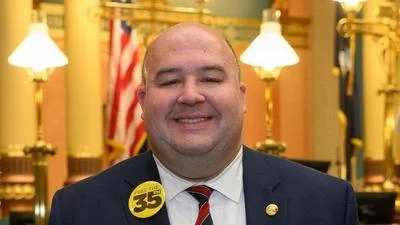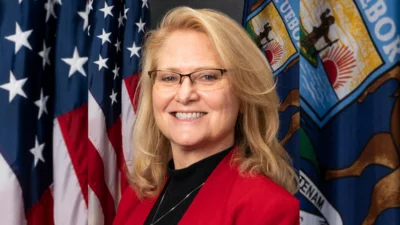Sandy K. Baruah, President and CEO | Detroit Regional Chamber
Sandy K. Baruah, President and CEO | Detroit Regional Chamber
Reshoring manufacturing operations can help businesses attract new customers and strengthen brand loyalty. According to a poll by the Alliance for American Manufacturing, 82% of shoppers would buy more products made in America if they were more widely available. This interest is not limited to the United States; a Boston Consulting Group study found that 85% of U.S. consumers and 82% of Chinese consumers view American-made products as higher quality.
The “Made in the USA” label signals quality and job security for American workers. As Investopedia notes, “‘Made in the USA’ [is] a label that carries an unspoken promise of quality with an undertone of job security for American workers.” Pairing this label with small business credentials can further boost consumer trust and loyalty. Research from Faire indicates that people are willing to spend more each month to support local shops.
Businesses looking to use the “Made in the USA” claim must comply with Federal Trade Commission (FTC) guidelines. Mislabeling products can result in penalties up to $53,088 per violation. The FTC has two categories for origin claims: unqualified claims, which require products to be entirely or almost entirely made in the United States, and qualified claims, which allow for some foreign content but require clear disclosure (such as “70% U.S. content” or “Assembled in USA from Italian leather”). Companies should review these rules on the FTC’s website before making any labeling statements.
Online searches for U.S.-made goods have risen sharply, presenting opportunities for businesses to reach customers through search engine optimization (SEO), paid advertising, and online marketplaces. SmartScout reported that searches like “Made in USA products only” have increased 220% year over year, while Digiday noted similar growth in related search terms.
Scott McIntosh, owner of Cell Phone Seat, shared his approach: he added a “Made in America” badge to his homepage and highlighted tariff-free status. He also incorporated this messaging into Amazon listings and SEO descriptions.
Major marketplaces like Amazon do not emphasize country-of-origin information, so businesses may find better results on platforms such as Etsy, Bonanza, Wish, Pinterest, TikTok, Instagram, or dedicated sites like Made in America Store or Authenticity50.






 Alerts Sign-up
Alerts Sign-up